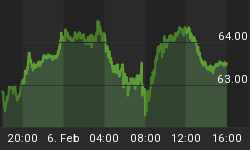As last year's Arab spring has slowly roiled eastwards from Tunisia to the eastern Mediterranean, the two most concerned governments are the U.S. and Israel, that are watching their carefully constructed defense alignments crumble to the populist forces unleashed.
After decades of repression, the Arab "street" is finding its democratic voice, which is rejecting the cozy decades-long security and energy arrangements carefully stitched together by Washington to ensure Israeli security. In the "brave new world" emerging, it is increasingly obvious that the post-Arab Spring governments, inhaling Western democratic ideals relentlessly promoted as the way forward, have a radically different agenda than those proposed by Washington and Tel Aviv.
Viewing social upheavals decades ago, in 1973 Henry Kissinger, President Nixon's Secretary of State commented prior to the CIA overthrow of the democratically elected government of Chilean socialist President Salvadore Allende "I don't see why we need to stand by and watch a country go communist due to the irresponsibility of its people."
Now the Arab spring seems to be embracing two policies anathema to Washington - a rejection by Egypt of its ties to Israel, carefully fostered by assassinated Egyptian President Anwar Sadat and his successor, Hosni Mubarak, Egypt's President until 13 months ago, when the Arab spring populist uprising unseated him and his administration's cozy energy arrangements with Israel, which provided Tel Aviv with 2/5 of its natural gas import requirement needs.
In a development largely overlooked in the Western press, in an evening session on 12 March the Egyptian People's Assembly demanded the deportation of the Israeli ambassador Yaakov Amitai, and the withdrawal of the Egyptian ambassador from Tel Aviv.
And oh, the nullification of the country's natural gas sales to Israel.
The People's Assembly vote was unanimous.
Why?
As a protest against Israel's recent campaign against the Palestinians in the Gaza Strip, which the Egyptian Assembly considers a flagrant violation of human rights.
Newly founded Egyptian democratic handwriting on the wall? Assembly speaker Saad al-Katatny asked a special parliamentary committee to follow up the implementation of the demands with the government, releasing a People's Assembly statement commenting, "Egypt after the revolution will never be a friend of the Zionist entity, the first enemy of Egypt and the Arab nation," demanding that the Egyptian government review all its relations and agreements with that "enemy" along with calling for stopping Egyptian natural gas exports to Israel.
So, how serious a threat?
Egypt is the Arab's world's largest country and has played a central role in Middle Eastern politics for decades. In 1979 Egyptian President Anwar Sadat made peace with Israel under terms of the Camp David agreement. Sadat's initiative led to Egypt being expelled from the Arab League for a decade, and in 1981 Sadat was assassinated by Islamic extremists, to be succeeded by Hosni Mubarak, who ruled Egypt until February of last year, when the "Arab Spring" swept him from power.
The tenuous peace established by the Camp David accords, liberally lubricated by massive U.S. aid, endured until February 2011, and quite aside from marginalizing the Arab world's military superpower, further paid off Israel with the opening in 2005 of Egypt's $500 million East Mediterranean Gas Company Ltd. (EMG) pipeline, which supplied 40 percent of Israel's natural gas through an underwater pipeline from the Egyptian city of El Arish on the northern Mediterranean coast to the Israeli port of Ashkelon.
The East Mediterranean Gas Company Ltd. was established in 2000 and is jointly owned by Egyptian General Petroleum Corp., which owns 68.4 percent of the venture, and its 170 million cubic feet of gas per day of exports and met nearly half of Israel's natural gas needs until the Arab Spring swept Cairo a year ago.
The latest Egyptian National Assembly vote puts that at risk.
But it's not as if Tel Aviv has been unaware of the consequences of Cairo's "Spring," as the East Mediterranean Gas Company Ltd. Pipeline has been bombed 13 times since Mubarak's overthrow, most recently on 5 March, and remains closed at present.
The National Assembly's motion at present remains largely symbolic because only Egypt's current government, the Military Council, can sign off on such decisions.
That said, the vote is a startling manifestation of the feelings of the Egyptian people, and, as such, can hardly be ignored in the Middle East's rising embrace of democratic values, as assiduously promoted by Washington. The only problem for the U.S. is that Egyptian voters had a somewhat different perception of what being able to choose in their foreign relations entailed, and after decades of Mubarak's rule, have a somewhat different view of the future from their Washington 'advisers."
Egyptian voters have resoundingly rejected Washington's exhortations and accordingly, Israeli consumers had better be ready to turn down both their thermostats and air conditioning, as the winds of change of the Arab Spring continue to roil the Middle East and bring new political realities into being, undoubtedly not all to Washington and Tel Aviv's liking.
By. John C.K. Daly of Oilprice.com















